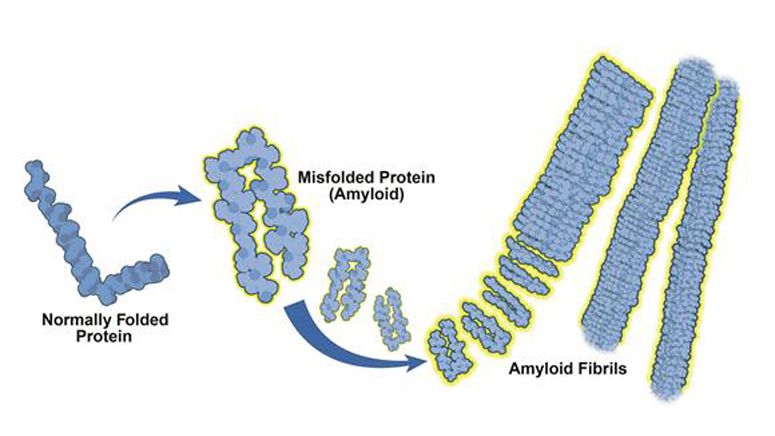When an aberrant protein called amyloid accumulates in your tissues and organs, it causes amyloidosis. When it does, both their shape and functionality are impacted. Amyloidosis is a dangerous medical condition that can result in organ failure that is fatal.
Amyloidosis Causes and Types

Even though many different proteins have been linked to serious health issues, only a small number of them can cause amyloid deposits. Your type of amyloidosis is determined by the type of protein and the location where it accumulates. Your body may develop amyloid deposits all throughout or in just one location.
There are various forms of amyloidosis, including:
AL amyloidosis (Immunoglobulin light chain amyloidosis)
This is the most prevalent kind and was once known as primary amyloidosis. “Amyloid light chains,” the kind of protein that causes the illness, are referred to as “AL.” It occurs when your bone marrow produces aberrant antibodies that cannot be broken down, although there is no recognized reason. It has a connection to the blood malignancy multiple myeloma. It can affect various vital organs such as your kidneys, intestines, liver, nerves, and hearts.
AA amyloidosis
This syndrome, formerly known as secondary amyloidosis, is brought on by another chronic inflammatory or infectious illness such as rheumatoid arthritis, Crohn’s disease, or ulcerative colitis. It mostly affects your kidneys, but it can also have an impact on your liver, heart, and gastrointestinal system. A is for amyloid type. This form of disease is brought on by a protein.
Dialysis related amyloidosis (DRA).
People who have been receiving dialysis for more than five years and older adults are more likely to experience this. Beta-2 microglobulin deposits that accumulate in the blood are the cause of this type of amyloidosis. Although deposits can accumulate in a variety of tissues, they most frequently impact tendons, joints, and bones.
Amyloidosis that is inherited or familial.
This uncommon type is inherited through families. The liver, nerves, heart, and kidneys are frequently impacted. Amyloid disease risk is increased by a number of genetic flaws. For instance, transthyretin (TTR) [1], an aberrant protein, is frequently the cause.
Amyloidosis that only affects certain organs.
Cutaneous amyloidosis is the result of amyloid protein deposits in specific organs, including the skin.
Amyloidosis, which affects your entire body but seldom affects the brain, has been related to Alzheimer’s disease [2] in some cases but not in others.
Systemic amyloidosis associated with aging.
The heart and other tissues have deposited normal TTR, which is the cause of this. Older males experience it more frequently.













